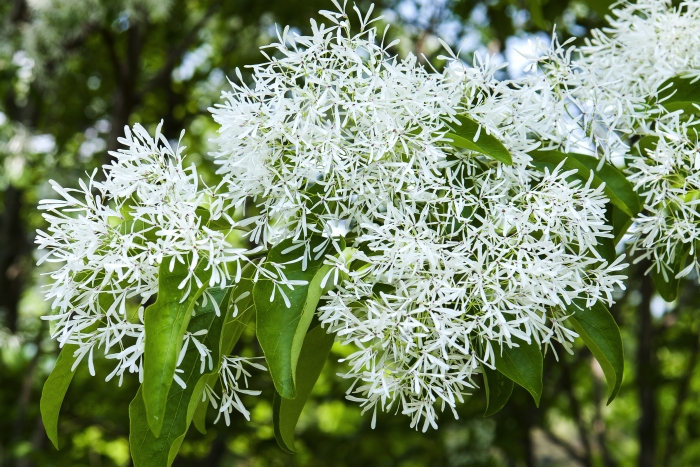Chinese Fringe Tree
(Chionanthus retusus)
Chinese Fringe Tree (Chionanthus retusus)
/
/

bastus917 (영철 이)
CC BY-SA 2.0
Image By:
bastus917 (영철 이)
Recorded By:
Copyright:
CC BY-SA 2.0
Copyright Notice:
Photo by: bastus917 (영철 이) | License Type: CC BY-SA 2.0 | License URL: https://creativecommons.org/licenses/by-sa/2.0 | Uploader: Declangi | Publisher: Wikimedia Commons | Title: Chionanthus_retusus_-_Chinese_Fringetree_-_9.jpg | Notes: |
























Estimated Native Range
Summary
Chionanthus retusus, commonly known as Chinese fringe tree, is a deciduous shrub or small to medium-sized tree from the Oleaceae family. It is native to a variety of habitats in eastern Asia, including mixed forests, forest margins, and along streams in eastern and central China, Japan, Korea, and Taiwan. This species typically grows to 20 meters (70 ft) in height, featuring thick, fissured bark and a rounded, spreading form. The white, fragrant flowers bloom in late spring to early summer in panicles 3–12 cm (1–5 in) long, creating a showy display. The fruit is a blue-black drupe, which is attractive to birds.
The Chinese fringe tree is appreciated for its ornamental value, particularly the feathery white flowers that create a cloud-like effect. It is used in urban landscapes, residential gardens, and as a specimen tree. It adapts well to a range of soil types, provided they have slow to medium drainage. While it can tolerate full sun, it also thrives in part shade, which can be beneficial in hot climates. Regular watering is necessary, especially during dry periods. It is relatively disease-free, but can occasionally suffer from scale insects or borers. The tree is not known for aggressive roots or significant disease problems, making it a low-maintenance choice for gardeners.CC BY-SA 4.0
The Chinese fringe tree is appreciated for its ornamental value, particularly the feathery white flowers that create a cloud-like effect. It is used in urban landscapes, residential gardens, and as a specimen tree. It adapts well to a range of soil types, provided they have slow to medium drainage. While it can tolerate full sun, it also thrives in part shade, which can be beneficial in hot climates. Regular watering is necessary, especially during dry periods. It is relatively disease-free, but can occasionally suffer from scale insects or borers. The tree is not known for aggressive roots or significant disease problems, making it a low-maintenance choice for gardeners.CC BY-SA 4.0
Plant Description
- Plant Type: Tree
- Height: 10-20 feet
- Width: 10-20 feet
- Growth Rate: Moderate
- Flower Color: White
- Flowering Season: Spring
- Leaf Retention: Deciduous
Growth Requirements
- Sun: Full Sun, Part Shade
- Water: Medium
- Drainage: Slow, Medium
Common Uses
Bee Garden, Bird Garden, Border Plant, Butterfly Garden, Deer Resistant, Fragrant, Hedges, Hummingbird Garden, Low Maintenance, Showy Flowers, Street Planting
Natural Habitat
Mixed forests, forest margins, and along streams in eastern Asia
Other Names
Common Names:
Scientific Names: , Chionanthus retusus, Chionanthus retusus var. serrulatus, Chionanthus chinensis, Chionanthus retusus var. coreanus, Chionanthus serrulatus, Chionanthus coreanus, Chionanthus duclouxii, Chionanthus retusus var. fauriei, Chionanthus retusus f. coreanus
GBIF Accepted Name: Chionanthus retusus Lindl. & Paxton